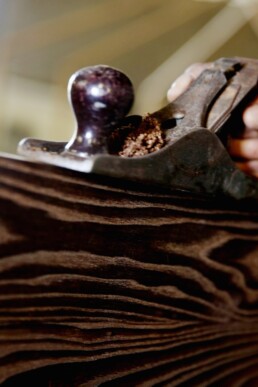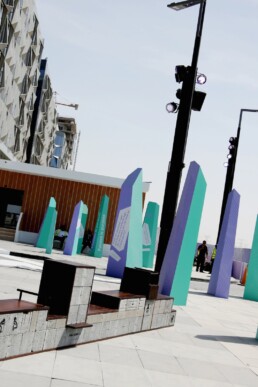Totally 'green' and with absolutely no chemicals added, thermally modified timber is being specified 'across the board' - particularly where durability and dimensional stability are priorities.
One such product is Cambia by Greenleaf – made with the best American hardwoods and delivering impressive results in a wide range of indoor and exterior applications. The Cambia process is simple and chemical free and Australian distributor Britton Timbers says it offers a viable alternative to tropical hardwoods.
“We see the supply of tropical hardwoods out of South-East Asia and the Pacific coming to an end – either by supply/demand dynamics, or by continuing pressure against illegal logging,” says director Dominic McNeil. “Demand from architects, builders and the general public for certified sustainable products is also increasing, and when it comes to hardwoods, there simply isn’t enough to go around – even in Australia.
“But finding a durable, certified alternative that doesn’t come from the tropics is not easy. “So we turned the problem on its head and found naturally nondurable but totally sustainable hardwoods in the United States that have been made durable by the Cambia thermal modification [torrefaction] process.” One of Britton’s major US hardwood suppliers, Northland Forest Products in New Hampshire, was one of the first to install a Cambia oven to process its FSC-certified white ash, soft maple, red oak and yellow poplar for domestic and international markets. That was five years ago and McNeil says he now has an “exciting customer base” in Australia, with a rapid demand increase in the last two years.
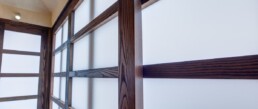
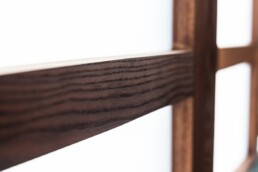
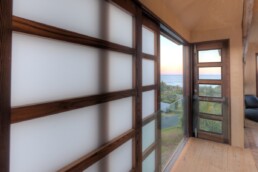
“Joiners are a big part of our clientele and they are looking for alternatives to the likes of New Guinea rosewood and surian from South-East Asia. Cambia comes fully certified and our customers also like the chocolate-brown colour – particularly the torrefied ash with its beautiful grain.” Thermal modification removes the natural sugars, preventing the wood from absorbing or giving off water vapor, and bacterial decay. Wood exhibiting low Equilibrium Moisture Content (EMC) is resistant to cupping, twisting and warping. Or as McNeil puts it: “Dimensionally stable wood looks better longer.”

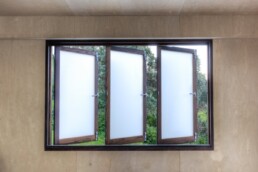

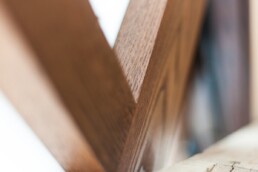
Cambia is naturally decay resistant without the use of added chemicals. And unlike other manufacturing processes that combine numerous constituent components to create a new product, thermal modification uses only heat to change the physical and chemical nature of wood. Much of the energy required to do the modification also comes directly from the wood. At high heat, combustible organic compounds from the wood become a fuel source.
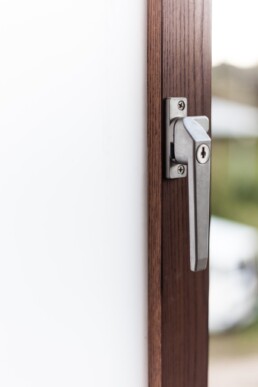
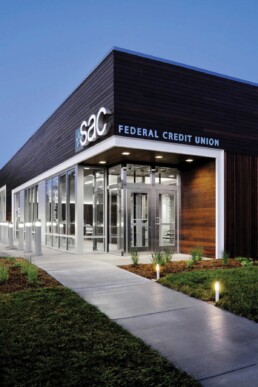
Applications
In Australia, McNeil says awareness is still low, and the main uptake for Cambia has been for external applications – particularly architectural cladding and feature walls, decking, window and door joinery, plus doors for kitchen cabinets.
In the US it is also being used for flooring, outdoor furniture, playgrounds, spas and pool areas. Although it comes in a rich range of colours, when used outside it will weather just like any other timber. “Any normal timber will grey and check outside. But the great advantage with Cambia is its stability – you don’t have any cell collapse or bound water, which greatly limits movement,” says McNeil.
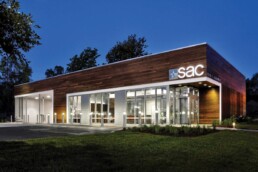
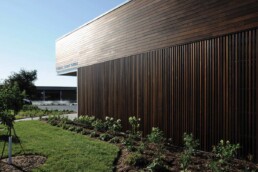

Species Choice
Most popular in Australia are strongly grained American white ash and American soft maple. “There are other options but the architectural market really likes the grain, which is why US timbers are used here in the first place.” Richness of the colour is determined by a combination of the species and the amount of time the wood spends in the kiln.
Water is added during the drying process to standardise temperature and reduce checking and splitting in service. Cambia also comes in dimensions not available in other species. Ash is particularly well priced, and because it doesn’t have to be LOSP treated like most other imported hardwoods, it is only slightly dearer than standard ash – including FSC certification.


